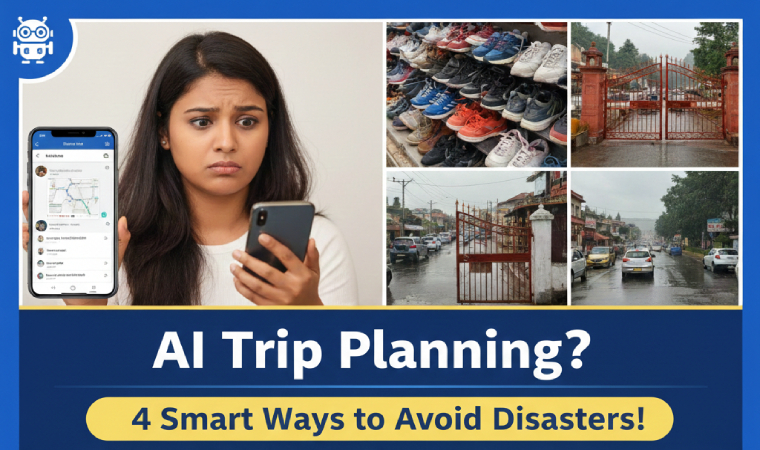In the fast-paced, ultra-connected world where we live, the idea of slowing down and living out of a backpack might sound either romantic or reckless. But for some(fakirs), it’s neither. It’s just life.
There is something quiet rebellious about choosing a road without a destination, and in India, this way of living has ancient roots. From barefoot fakirs wandering sacred lands to digital nomads checking emails from Himalayan cafes, the spirit of this movement lives on.
Who are Fakirs? (Nomads)
These aren’t just any wanderers — they’re spiritual seekers and curious minds. In Bengal, the Bauls roam from village to village singing songs that are actually spiritual philosophies. In the deserts of Rajasthan, Sufi fakirs blend poetry with devotion, creating music that’s as sacred as, it is soothing.

Watch any of the YouTube documentaries on them and you’ll see it; their life is performance, prayer, and pilgrimage all rolled into one. They carry almost nothing, yet seem to have everything that matters — rhythm, faith, and presence.
No rush, no destination-only devotion; Spiritual nomads
This idea of spiritual nomadism isn’t just historical or poetic – it’s the echo of a timeless human longing. Some fakirs, like those featured in “The Last of the Singing Fakirs,” (On Youtube) live with nothing but a cloth bag and a voice full of stories. They rise before sunrise, offer silent prayers, and walk cities barefoot, spreading blessings with no need for a map. There’s no rush, no destination — only devotion. Their life is minimalism with meaning.
Fakirs Vs Modern nomads
Now let’s fast forward! Imagine someone like you or me -with a laptop, a phone, maybe a GoPro – wandering between Goa, Rishikesh, and McLeod Ganj. They’re working remotely, sipping masala chai between meetings, and editing videos by candlelight. That’s the modern nomad. In YouTube vlogs like “Day in the Life of a Digital Nomad in India”, you see this curious blend of tradition and tech. There’s still the spirit of movement, but now it’s powered by Wi-Fi and wanderlust.

But here’s the thing — both types of wanderers have more in common than we think. For fakirs, the road is their temple. For digital nomads, the road is their office. Neither seeks luxury. They travel light, live slow, and measure wealth not in rupees or dollars, but in experiences and connections.
Blessings from fakirs and potlucks with digital nomads
Fakirs bless strangers they meet. Digital nomads host potlucks in hostels, swapping stories instead of business cards. In both cases, discomfort is part of the deal.
Fakirs endure harsh weather, long pilgrimages, and solitude. Digital nomads battle visa issues, flaky internet, and culture shocks. But there’s beauty in this rawness. It sharpens your senses, deepens your gratitude, and teaches you that home isn’t a place – it’s a feeling.
How can you, ‘Start small’?
There are powerful lessons here for all of us. You don’t need to give up your job or sell everything to live like a nomad. Start small. Maybe take your work to a quiet mountain town for a week. Unplug on weekends. Replace scrolling with journaling. Listen more than you speak. Watch videos from actual nomads and fakirs — feel the rhythm in their steps, the grace in their gaze.

And maybe most importantly, question what “success” means to you. Because when you see a fakir dancing barefoot in the rain or a digital nomad working from a beach with a smile you can’t fake, you realize something: they may not have a house, but they have home. Deeply, wildly, peacefully, home!
So, whether you’re drawn to the Sufi chants echoing in narrow lanes or the glow of a laptop under Himalayan stars, know this — you don’t have to fit into anyone’s idea of a life well lived.
Your path can be slow, your rhythm your own. And somewhere along that winding road, you might just find what you weren’t even looking for! yourself.

Five Colors of Travel भारत का एक भरोसेमंद Hindi Travel Blog है जहां आप ऑफबीट डेस्टिनेशन, culture, food, lifestyle और travel tips की authentic जानकारी पढ़ते हैं













